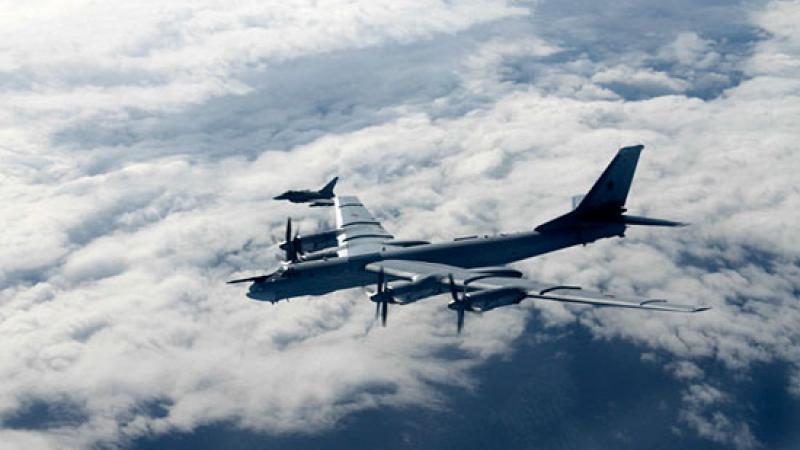As Putin's Victory Day brings no major war escalation, U.S. ramps up support of Ukraine
In preparation for this year's Victory Day, President Joe Biden scheduled a bill-signing ceremony to revive the World War II lend-lease program, allowing the U.S. to hasten delivery of weapons to Ukraine.
As expectations of dramatic Victory Day developments from the Kremlin fell short on Monday, the U.S. pressed forward with actions designed to help foil Russia's invasion of Ukraine.
Russia celebrates annually the Soviet Union's defeat of Nazi Germany in World War II, staging a major military parade on Victory Day, May 9. Russian President Vladimir Putin has been known to take a keen interest in the parade and surrounding commemorations.
In preparation for this year's Victory Day, President Joe Biden scheduled a bill-signing ceremony to revive the World War II lend-lease program, allowing the U.S. to hasten delivery of weapons to Ukraine.
"I'm signing a bill that provides another important tool in our efforts to support the government of Ukraine and the Ukrainian people in their fight to defend their country and their democracy against Putin's brutal war," Biden said Monday while signing the document.
Much apprehensive international speculation centered on what would happen during this year's Victory Day celebration. Kremlin-watchers predicted that Putin would use the occasion to announce a major escalation of the war, or that he would place captured Ukrainians on display — or that he might even use nuclear weapons.
The Moscow event, by contrast, was relatively uneventful. Putin did not escalate his "special military operation" by declaring war on Ukraine, and he did not declare victory in the highly contested Donbas region of eastern Ukraine. Additionally, the Z-formation jet flyovers that Russian forces rehearsed were canceled shortly before the parade began.
Putin on Monday delivered a short speech in which he accused NATO and the West of "preparing for the invasion of our land, including Crimea." He couched the invasion of Ukraine as a defensive operation to protect "the motherland" from "the revival of Nazism."
Both Ukraine and NATO presented an "absolutely unacceptable threat immediately next to our borders," Putin said. "Russia repelled this aggression in a timely way. It was the only correct decision."
Observers in the West were quick to counter Putin's claims.
Putin and his generals are "mirroring the fascism and tyranny of 77 years ago, repeating the errors of the last century's totalitarian regime," British Defense Minister Ben Wallace said in a Monday address.
Pentagon spokesman John Kirby noted that neither NATO nor Ukraine had planned to attack Russia.
The Pentagon additionally highlighted Russia's faltering military operations inside Ukraine.
"We still see anecdotal reports of poor morale of troops, indeed officers, refusing to obey orders and move and not really sound command and control from a leadership perspective," a senior defense official said Monday.
The United States should increase its military aid to Ukraine, Sen. Lindsey Graham (R-S.C.) said earlier.
"We need to triple down on our willingness to help the Ukraine," Graham said on Sunday. "We need to pass a $33 billion supplemental package, $20 billion for weapons. We need to work with the International Criminal Court to gather evidence to prosecute Putin personally."
Graham made his comments during an appearance on Fox News Sunday. "Putin must go," he said. "If Putin is still standing after all this, then the world is going to be a very dark place. China is going to get the wrong signal, and we'll have a mess on our hands in Europe for decades to come."
Biden on Monday said that he has asked Congress to approve more assistance to Kyiv.
"This aid has been critical to Ukraine's success on the battlefield," he said.
"I call on Congress to pass the Ukrainian Supplemental funding bill immediately, and get it to my desk in the next few days," he said.
Putin launched his invasion Feb. 24 under the guise of conducting a "special military operation."
















